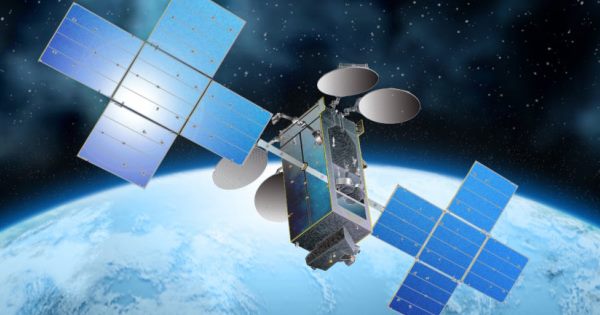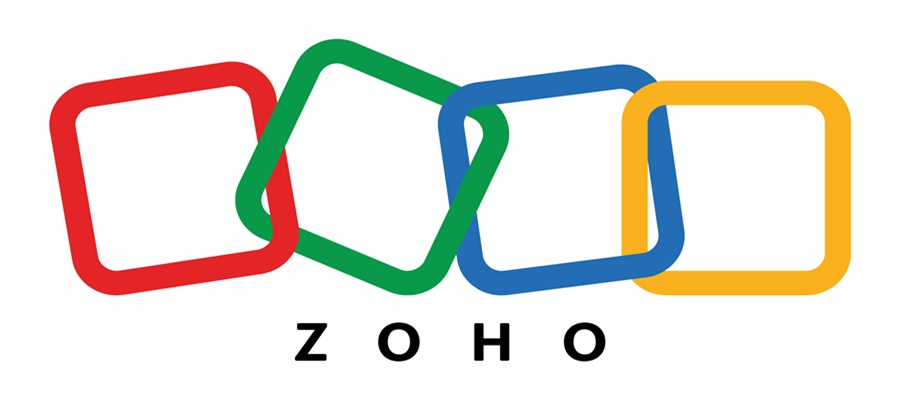General News
Satellite Technology is Ready When Needed for Border, Port & Maritime Security

By Andrew Aroh
We are still trying to figure out a lot of things in terms of threats, vulnerabilities and the integration of resources. We need to ensure that the satellite realm is recognized as critical infrastructure.

Satellite is a technology, which plays a critical role already, but most often omitted from formal discussions, and this is a huge problem.
Satellite communications is rarely mentioned as a specific solution or recommendation that spells out the need for improved communications and interoperability. There are instances, however, where attention is focused on a possible satellite solution such as border, port and maritime security. Recall the long-range vessel tracking system. In this case, we develop and implement a long-range automatic vessel tracking system for all vessels in Nigeria waters that are equipped with the Global Maritime Distress and Safety System or equivalent satellite technology. The system shall be designed to provide the safety agencies or the authority the capability of receiving information on vessel positions at interval positions appropriate to deter transportation security incidents.
The above underscores the pivotal role of satellite technology at sea, and offers a possible way to solve the vessel tracking puzzle, which is an important dimension of port and maritime security under a much broader concept known as maritime Domain Awareness [MDA] as well as the system known as the Universal Shipborne Automated Identification System [AIS].
SECURING CARGO AND PORTS:
- The goal here is to increase security throughout the entire international logistics chain by implementing security verification techniques. Building security into the global supply chain is a huge challenge.
- By expanding the role of satellite based systems such as GPS, AIS and the vessel Monitoring system, we can reinforce and extend our existing security verification techniques. Satellite technology is essential to making key elements of overall MDA system work.
- AIS a top priority which has been kicked into high gear by MDA. As a GPS-based system, AIS does include a possible long range interface with a satellite feed, for example.
The International Maritime Organization [IMO] is speeding up required carriage of AIS as well.
We have to have sufficient transparency and be able to verify low risk cargo as we go about building more confidence into our maritime and port security apparatus in general.
The process of tracking cargo as it moves along throughout complex intermodal transportation system mandates that we move our borders out, and provide security that moves with the box or container in question.
- Although satellite enjoys general recognition in terms of the key role it can play here, satellite is not going to happen without real advocacy. A good paper trial has to be wrapped around a regulatory model to drive more innovations in the maritime domain. This will enable the exploration of new technology such as electronic seals, vessel tracking and electronic notification of vessel arrivals.
- There is a growing interest in the use of satellites and GPS and global location systems to track the movement of cargo in real time. We are aware several companies have piloted advanced devices such as transponders and electronic seals, which when used with satellite technology, can pinpoint the location of a truck chassis, container, truck, ship or railcar in real time.
While the results of these demonstrations have been promising, we have also seen that this technology is feasible in a complex, commercial supply chain, on a practical as well as on an economic level.
Testing of satellite technology also upholds the devices for their ability to withstand the rigors of the commercial sea container/port environment, the effectiveness of the communication infrastructure, and their scalability, with the goal of developing requirements and protocols that can be commercialized within a competitive marketplace.
- While satellite technology is able to assist maritime security, primarily in terms of tracking ships or cargo consignments, resources could be a problem.
Again, it would be inordinately expensive to track everything, and would create a blockage nightmare as well.
However, if some sort of compromise over the level of blockage can be achieved, there is much promise in satellite technology.
- Remember, success will be very much reduced if some sort of tracking is not introduced for at least suspect vessels. So satellites would help very much, but again, depending upon the resources available. The Coast Guard [as the only resource] will certainly be stretched to do this vessel tracking job in a thorough manner.
BORDER PATROL LINKED VIA SATELLITE:
As for the nation’s borders, and the role of satellite technology in such programs as Smart Border Initiative, the National Transportation Security Plan and the National Land Border Security Plan, the door remains wide open. This is because for the large states, Cellular Digital Packet Data [CDPD] or Radio Frequency [RF] is not viable options.
- Therefore, we need the applications of satellite for data transfer. We can implement a limited number of satellite voice units to supplement regular radios in fringe coverage areas.
Absolutely, the recommendation is that the federal Government should spend more money to equip state law enforcement agencies in rural Border States with more satellite equipment [linked to NigComSat-1R] both for routine use as well as for enhanced border security purposes. Note that the border is one of the areas where we have the weakest coverage utilizing our existing radio technology. Hence any activity we participate with in those areas should see the benefit of satellite technology regardless of whether it is border security, search & Rescue or our other law enforcement missions.
- In every state, we can start with two vans assigned to perform commercial vehicle enforcement tasks equipped with two-way satellite terminals that can be used for dispatch as well as to instantaneously access driver and vehicle data anywhere in the state, including its remote border region. With the satellite technology, one can quickly check all the paperwork, validate the driver and verify that any Department of Transportation permits are valid, if required. One goal here is to simply increase monitoring presence in this remote and scarcely populated region both for safety and security purposes. The cost and ease of use of satellite gear are important considerations as well. There is no question that commercial vehicle enforcement activities represent a critical part of the overall plan to enhance border protection.
SATELLITE IMAGERY CONTROL:
- Besides making sure that satellite technology is used in the most effective way to protect borders, coasts, and port, government and military officials must also ensure that any group seeking to do harm does not gain access to high-resolution satellite imagery.
- We need policies for prohibiting the release of imagery beyond a certain resolution such as the guidelines provided by the appropriate security department, notification when an image crosses an international boundary, or when such a request is made by a person or group.
There is thus, a great need for effective and efficient schemes for facilitating such controlled dissemination of satellite imagery and the information products generated from it.
- Experts in the area of information systems security have access control model for high-resolution satellite image databases.
Commercial Satellite Organizations should proactively address sensitive satellite-related issues such as the fact that image collection or distribution must be constrained where there is an immediate and substantial threat to national security or foreign policy commitment.
FUTURE SOLUTIONS VIA SATELLITE:
Reliable and affordable satellite solutions are reliable and most can be quickly obtained as off the shell, commercial satellite products.
Enhancing border, port and maritime security may require the creation of novel hybrid solutions which can be useful to multiple agencies. Using the broad footprint of satellites, along with the proven reliability of satellite-based solutions can be brought to bear quickly on a variety of security-related objectives.
Andrew Aroh is President SSPI Nigeria
General News
NITDA, HORSA Empower Lawmakers’ Spouses with Digital Skill

The National Information Technology Development Agency (NITDA), in partnership with the House of Representatives Spouses Association (HORSA), organized a specialized two‑day digital literacy and capacity‑building workshop for the spouses of members of the House of Representatives.

The initiative, themed “Empowering Women for a Digital Future: Leadership, Wellbeing, and Opportunity,” is designed to equip spouses of lawmakers with the tools needed to navigate the modern digital economy and the unique demands of public life.
Moving beyond basic computer literacy, the workshop offers a comprehensive suite of skills, including financial and digital literacy—focused on using digital tools for business growth and personal finance management; cybersecurity and digital wellbeing—promoting online safety, data protection, and mental health resilience; and economic empowerment—unlocking opportunities in remote work, Business Process Outsourcing (BPO), and digital entrepreneurship.
Declaring the workshop open on behalf of the Speaker of the House of Representatives, Rt. Hon. Tajudeen Abbas, PhD, the Deputy Speaker, Rt. Hon. Benjamin Okezie Kalu, said the workshop underscores the crucial role spouses play in supporting public office holders. He described spouses as trusted advisers whose understanding of legislative responsibilities helps lawmakers perform more effectively.
He noted that the demanding nature of legislative work often places strain on family life, adding that empowering spouses with digital and leadership skills would strengthen their capacity to provide informed support and constructive feedback to their partners in public service. He urged participants to take full advantage of the training, stressing that continuous learning is essential in an increasingly digital world.
Kalu further observed that many spouses already lead humanitarian and development initiatives in their communities, and that the skills gained from the programme would enhance communication, strategic planning, and resource mobilisation, thereby deepening their contribution to community development and national growth.
In his welcome address, the NITDA Director‑General, Kashifu Inuwa, said the initiative aligns with the Federal Government’s drive to build a sustainable digital economy by ensuring that no group is excluded from digital opportunities due to skills gaps. He noted that the Renewed Hope Agenda of Bola Ahmed Tinubu places digitalisation and innovation at the heart of economic diversification and inclusive growth.
He added that NITDA is implementing a national digital literacy framework aimed at achieving 95 per cent digital literacy by 2030, driven through three key focus areas: integrating digital skills into formal education, upskilling public servants, and expanding community‑level digital inclusion.
Inuwa described women as critical drivers of Nigeria’s digital transformation, noting that empowering spouses of lawmakers with digital skills would strengthen leadership at home and positively influence legislative processes at the National Assembly. He explained that NITDA is working with the Ministry of Education and global technology partners to train teachers nationwide, while over 54,000 public servants are currently enrolled in the Agency’s digital literacy programmes.
He also stated that through community champions deployed across the 36 states and the Federal Capital Territory, millions of Nigerians are being reached annually with basic digital skills training, stressing that national leaders must not be left behind in Nigeria’s digital transition. According to him, digitally literate spouses can play a vital role in encouraging technology‑driven governance, including ongoing efforts to digitise legislative processes.
In her goodwill message, the Leader of HORSA and wife of the Speaker, House of Representatives, Hajiya Fatima Tajudeen Abbas, described the workshop as a historic milestone and the first comprehensive capacity‑building programme organised by the 10th Assembly for spouses of lawmakers. She noted that public life in a digital age now extends beyond physical spaces into online platforms, making digital and financial literacy, cyber protection, and digital wellbeing essential skills for spouses of national leaders.
Hajiya Abbas emphasised that the sessions on mental health, emotional resilience, entrepreneurship, and leadership were timely, as spouses of public office holders often shoulder invisible emotional responsibilities. According to her, empowering women economically strengthens families and communities, adding that the knowledge gained from the workshop would not only support lawmakers behind the scenes but also enable women to contribute more meaningfully to national development in the digital economy.
The event also featured goodwill messages and contributions from senior government officials, including the Chief of Staff to the President, Hon. Femi Gbajabiamila; the Honourable Minister of Women Affairs and Social Development, Hon. Imaan Sulaiman Ibrahim; the Chairperson of the Nigeria Governors’ Spouses’ Forum, Prof. (Mrs.) Olufolake Abdulrazaq; the Chairman of the House Committee on ICT, Hon. Stanley Olajide; the Chairperson of the House Committee on Women Affairs and Social Development, Hon. Kafilat Ogbara; and the Managing Director of the South-South Development Commission, Usoro Offiong Akpabio.
General News
PalmPay Unveils First Batch of Winners in #LoveWithPalmPay Campaign

PalmPay is thrilled to announce the first set of winners of its highly anticipated Valentine-themed #LoveWithPalmPay campaign, following a week of receiving entries from users across the country, celebrating their real love stories shaped by simple money moments.

The #LoveWithPalmPay, a two-week campaign which started on the 9th of February until the 21st of February, has unveiled the first set of four (4) couples who shared their heartfelt stories of how PalmPay has positively impacted their relationships, from seamless transfers and bill payments to shared savings goals, dates, and everyday financial support.
The first batch of selected winners are:
- Abdulsalam Aishat Omowumi ( Facebook)
- Symply Omotoshan (Instagram)
- Unusual_aaron (Tiktok)
- MTN_DATA_VENDOR (X)
Speaking on the campaign, Olorunfemi Hanson, the Head of Marketing of PalmPay, stated, “We are using the campaign to appreciate our over 35 million users and the many ways they use the PalmPay app to make life seamless. The four (4) couples, each rewarded with ₦100,000, were chosen based on how effectively they highlighted PalmPay’s features and demonstrated how the platform helped their everyday payments be reliable and seamless.
PalmPay noted that with the campaign still ongoing, four (4) more couples will be announced in the coming days, encouraging more users to continue sharing their love stories using the hashtag #LoveWithPalmPay on PalmPay’s social media platforms.
The campaign reinforces PalmPay’s commitment to creating financial solutions that not only simplify transactions but also bring people closer through meaningful, everyday money moments.
PalmPay is a leading digital banking platform driving financial inclusion and economic empowerment in underserved emerging markets. Through its secure, user-friendly, and inclusive suite of financial services, PalmPay empowers individuals and businesses with tools to manage and grow their money.
PalmPay offers a comprehensive range of products, including mobile payments, savings, and micro-insurance via its app and mobile money agent network.
General News
Zoho Celebrates 30 Years, Powers 1m Firms & 150m Users Worldwide

Zoho Corporation, a global technology company, today marked its 30th anniversary with the announcement of two major company milestones.

Zoho
Zoho Corporation, consisting of consisting of Zoho (cloud business solutions), ManageEngine (IT management), Qntrl (business process management) and TrainerCentral (e-learning platform), is now a trusted technology provider to one million paying customers and more than 150 million users globally.
Today’s announcement follows significant year-on-year customer (32%) and revenue (20%) growth in 2025.
Recent customers to Zoho Corporation include: in the United States, Rapid Response Monitoring and Synergy Home Care; in India, Mercedes-Benz India, Force Motors, Joyalukkas and Union Bank of India; in the UK/European Union, Flora Food Group, Handl Tyrol and Atout France; in Middle East-Africa, Al-Ahli Saudi FC and Al Qadsiah FC; in LATAM, Gonher Batteries, and in Brazil, Creditas and Editora Globo.
“Being bootstrapped, private, and built entirely in-house makes Zoho an outlier among competitors,” said Sridhar Vembu, Co-founder and Chief Scientist, Zoho Corporation.
“But vendors don’t need our help, businesses do, which is why delivering customer value has, for 30 years, been Zoho Corporation’s North Star.
“Before any innovation, strategy, or guiding principle becomes a product, pivot, or policy, it must first affirm the question, ‘Will this help businesses?’ We are incredibly grateful that companies around the world have responded so positively to our customer-first approach over the past three decades, and will continue to meet the evolving needs of businesses with powerful, scalable, and affordable solutions.”
Commitment to Africa
Zoho Corporation has steadily expanded its presence across Africa, supporting organisations of all sizes as digital transformation accelerates across the continent.
“Africa represents one of the most dynamic and entrepreneurial business environments in the world,” said Kehinde Ogundare, Country Head, Zoho Nigeria.
“Over the years, we have seen growing demand from African businesses seeking technology that is flexible, affordable and built for long-term value rather than short-term gain.
“Our continued investment reflects our belief in Africa’s innovation potential and our commitment to supporting local businesses with tools that help them scale sustainably.”
Zoho’s long-term approach aligns closely with the needs of African organisations, providing a unified technology platform without the cost and complexity often associated with enterprise software.

 Telecom2 days ago
Telecom2 days agoTerra Moves to Expand in African Drone Sector, Secures $22m Funding

 Telecom2 days ago
Telecom2 days agoTemu Assures Compliance Amid Nigeria Data Privacy Probe

 E-Financial2 days ago
E-Financial2 days agoDMO Offers ₦800bn FGN Bonds in February Auction Surge

 E-Financial2 days ago
E-Financial2 days agoDanjuma, Taj Bank Staff Jailed for 5 Years over N22m Fraud

 E-Financial2 days ago
E-Financial2 days agoKPMG Outlook Reveals Financial Services CEOs Double down on AI, Resilience and Growth in 2026

 Telecom2 days ago
Telecom2 days agoMTN Group Announces Proposed Full Acquisition of IHS Towers

 News2 days ago
News2 days agoChianugo, Nigerian $150m suit Against Google, GoDaddy.com Stalled due Judge’s Absence

 General News2 days ago
General News2 days agoFG to Review MTN’s $6.2Bn IHS Acquisition — Tijani
























